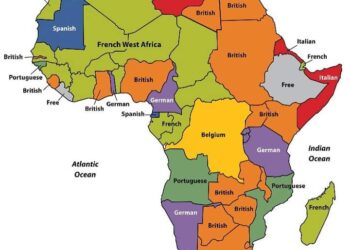The Chief of Air Staff (CAS), Air Marshal Oladayo Amao, has said the capacity of terror groups in the country has largely and significantly been degraded.
He however, noted that the threat posed by terrorism would require a far greater and comprehensive approach in collaboration with contiguous states and international partners.
A statement by spokesperson of the Nigerian Air Force (NAF) Air Commodore Edward Gabkwet on Friday, quoted Amao as saying this while delivering the keynote address at the International Fighter Conference 2021 held in London, United Kingdom.
Air Marshal Amao noted that with the support of the President Muhammadu Buhari-led administration, the NAF has acquired several platforms including trainers, rotary wing aircraft, unmanned aircraft systems and fixed wing aircraft.
“Through this support, the NAF has since 2015 flown over 40,000 combat and combat support hours in operations against terror groups, insurgents, bandits and other armed militants across the country”, he said.
He said NAF has taken measures to enhance its airpower capabilities for the conduct of irregular warfare and counterterrorism in support of surface forces. Some of these measures, according to the CAS, include doctrinal development and human capacity building as well as aircraft and equipment acquisition and sustenance.
Air Marshal Amao noted that sustaining air power capabilities, given its diverse nature, was a challenge for the NAF in the past.
He said, “Even more challenging was the drive to ensure the availability, responsible use, and effectiveness of critical airpower capabilities for counterterrorism and counterinsurgency.”
To address these challenges however, the CAS stated that measures such as the development of an operational doctrine to guide all operational commanders, staff and personnel were put in place.
“The NAF doctrines are also expected to stimulate reflective, critical and creative thinking, engender best ethical practices and foster professionalism in employment of our airpower”, he said.
Air Marshal Amao stated that he envisions a NAF that is well equipped and postured to adequately contend with threats and challenges in a digital environment.
He said he is optimistic that the NAF of the future would seek additional capabilities that would allow it to engage adversaries in the digital and information environment, whilst still prepared to respond to humanitarian needs occasioned by climate change.
The CAS however, stated that for these to be actualized, the NAF must immediately begin to improve on educational standards and enable creativity in the mindset of the airmen.
“We must deliberately keep pace with technology, albeit in a cost-effective manner, within the wider context of aerospace power. We must acquire capabilities to enable us operate in a digital environment, which state and non-state actors are likely to find more attractive,” he said.




